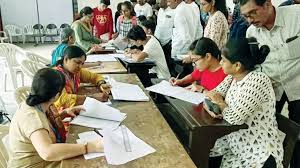Pune: Two final-year students from the Indian Law Society (ILS) College have filed a complaint with the Directorate of Higher Technical Education (DHTE) and submitted a petition to the Charity Commissioner, alleging financial exploitation and a lack of transparency in the institution’s fee collection process.
Mayur Suhas Garud and Krushnakant Subhash Sathe have raised concerns against the principal of ILS College, its secretary, Savitribai Phule Pune University (SPPU), the Bar Council of India, DHTE, the University Grants Commission (UGC), and the Social Justice and Special Assistance Department of Maharashtra. Their complaint, lodged under the Maharashtra Public Trusts Act, 1950, seeks a thorough investigation, removal of trustees, and the recovery of funds allegedly misused.
Garud, in his pursuit of transparency, filed a Right to Information (RTI) application to scrutinize the college’s financial activities. The information obtained reportedly revealed patterns of overcharging and financial irregularities under the pretext of fee collection. According to Garud, repeated attempts to obtain official circulars or documents justifying the fee structure were unsuccessful, as the principal and other authorities failed to provide any substantial clarification.
Further findings highlighted significant discrepancies in fund allocation. For instance, in the academic year 2019-20, a sum of ₹78,30,565 was reportedly collected for electronic resources, yet only ₹54,021 was utilized. Similarly, during 2020-21, ₹17,51,535 was accumulated under the Legal Aid category, with a mere ₹10,105 being spent.
In addition to student fee collections, ILS College allegedly generates substantial income by leasing its sports ground, gymnasium, swimming pool, tennis court, and parking space to private organizations and sports academies. Despite this revenue, students are still charged for these same facilities under various categories, including Gymnasium Fees, Sports Fees, and Swimming Pool Charges.
Students have also raised concerns over their restricted access to these amenities, as they are often occupied by external users. This practice of charging students while simultaneously earning from third-party rentals raises ethical concerns regarding the institution’s financial transparency.
Garud further pointed out that during the COVID-19 pandemic, the college continued charging students for non-operational services, including Games and Recreation (₹2,200), Gymnasium (₹2,750), Legal Aid (₹1,100), Moot Court (₹3,850), and Cultural Activities (₹2,585), despite the suspension of physical classes. He emphasized that these fees, collected without corresponding expenditures, amounted to unearned profits.
The students have urged authorities to conduct a special audit of the trust’s funds and initiate a detailed inquiry into the financial management of the college.
As the matter unfolds, the demand for greater transparency and accountability within educational institutions remains a pressing concern.
















